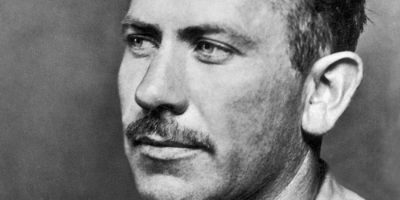Top 10 interesting facts about Franz Schubert
Franz Schubert was an Austrian music composer and an iconic figure in bridging the classical and romantic periods. He wrote over 1000 pieces of music.
He grew up in a musical family that helped him realize his musical talent. His father, Franz Theodor Schubert, was part of his musical genesis. Both his father and brother, Ignaz, contributed to his musical education.
He was quite modest about his talent. He would put away music he wrote and forgot about it. Franz Schubert took more lessons in composing because he did not think he was good enough.
His songs and dance music were so popular in Vienna that concert parties never missed playing them. The concerts were held in wealthy people’s homes and civil servants.
There is a lot of interesting facts about Franz Schubert. The top 10 interesting facts about him are:
1. Franz Schubert aka Little mushroom

Igor Yemelianov Unsplash
Franz Schubert was only five foot one tall. His extremely unusual height and his rather plump body earned him the nickname little mushroom.
He was also nicknamed “kanevas” for always asking new colleagues “Kann er was” (what can he do). Another noticeable trait about him was his stammer and his shuffle walking style.
2. Franz Large Family; he had over 14 siblings
Due to the high infant mortality in the 18th century, a large family was a norm in Vienna.
His mother gave birth to 14 children but only four survived to adulthood, with Franz being the youngest.
After the death of his mother, his father remarried and had five more children.
3. Franz Schubert was a party boy
Franz Schubert, like many other celebrated composers, he spent his evenings enjoying songs, poetry, wine and spiked punch. He was an argumentative drunk.
It was in such gatherings that Schubert spent his time briefly teaching with a tight-knit group of artists, poets and writers who called themselves ‘Schubertians’ or Schubertiads’.
4. Puberty made Schubert leave the choir
It is clear that Franz Schubert’s love for music was unquestionable. His music teacher, Antonio Salieri encouraged him to audition for the Vienna Boys’ Choir, which he passed.
This not only gave him free tuition, but also a free boarding room and a place in one of the best schools in Vienna.
Unfortunately, when he turned 15 and puberty struck, he was no longer eligible to be part of the choir. He returned home and was given a job at his father’s school.
5. Franz Schubert Accidentally Composed a Famous Roman Catholic prayer
There are two famous song versions of the Roman Catholic prayer, Ave Maria.
The first was by Charles Gounod, he wrote a setting for the words over the first Prelude for keyboard by J S Bach.
The second is the Schubert version. His setting was initially written as a set of a song from Walter Scott’s epic poem, The Lady of the Lake, along with drifting poem set in the highlands with caves, warriors, harps and rebellions.
It is thought that the opening words of Ave Maria could have been the inspiration for adapting Schubert’s melody to the Ave Maria prayer.
It is now the only version ever heard.
6. Schubert unfazed by Lack of Recognition as a child genius
Franz Schubert was not bothered when not many took notice of his composing ability and not his playing.
A lot of his work was too demanding and opted not to be swayed by the publishers who were pandering the amateur singers.
Nonetheless, his compositional output continued to grow at an amazing pace up until he died. He composed all the time; he once said ‘I work every morning when I have finished one new piece I begin another.’
7. Like Father like Son-Franz Schubert the Teacher

Feliphe Schiarolli Unsplash
Peter Schubert, Franz’s father, was a teacher by profession and an amateur cellist. He taught his son the basics of music. Like any proud parent, he hoped young Franz would take after him and be a teacher.
Schubert quickly became better than all of his music teachers, including his father, older brother, and the local choirmaster.
He was later taken to the Imperial Seminary by Salieri (of Mozart fame) where he sang in the choir, played the violin and was taught theory.
He eventually worked as a teacher for 3 years.
8. Franz Schubert was Relentless
Schubert was not a stranger to rejection from publishers. A number of his works got rejected but that did not dampen his spirits.
He worked in good health and in bad health. He composed Fierrabras while in hospital, the work got rejected. The beginning of 1824 saw a broke, sick and unhappy Schubert. He considered himself a failure.
He went back to his teaching job and in May 1824 after his return Zseliz, he sprung back to life.
9. Franz Schubert a torch-bearer at a great man’s Funeral
In March 1827, Schubert was a torch-bearer at Beethoven’s funeral.
There were, in fact, 39 other torch-bearers, including the composers, Hummel and Czerny. This is probably a clear statement of Schubert’s position in the Vienna social hierarchy than his relationship with Beethoven.
Not much is said about the Beethoven and Schubert ever meeting. Before his death, Schubert requested to be buried close to Beethoven who had died only a year earlier.
His funeral was a much quieter affair as Schubert’s fame had not reached the heights of Beethoven’s. He’s rose to fame posthumously.
Both graves were moved in 1888 to the Zentralfriedhof (the Central Graveyard of Vienna) where they can now be seen close to those of Johann Stauss II and Johannes Brahms.
10. Schubert: the only one of the great Viennese composers actually born in Vienna
Wikimedia
Schubert never moved out of his native Vienna. He died on November 19, 1828, aged 31 in Vienna.
Despite his short life, he had written over 1500 pieces of varying lengths. After his death, many musicians of his time and generations to come performed his work.
He is considered one of the greatest and most popular composers of classical music.
He is credited for some changes in classical harmony such as preferring to drop suddenly into unrelated, unexpected, keys, as in the transition from C major to E minor in the opening movement of his Symphony No. 9 in C Major, which he began in 1825.
Planning a trip to Paris ? Get ready !
These are Amazon’s best-selling travel products that you may need for coming to Paris.
Bookstore
- The best travel book : Rick Steves – Paris 2023 – Learn more here
- Fodor’s Paris 2024 – Learn more here
Travel Gear
- Venture Pal Lightweight Backpack – Learn more here
- Samsonite Winfield 2 28″ Luggage – Learn more here
- Swig Savvy’s Stainless Steel Insulated Water Bottle – Learn more here
Check Amazon’s best-seller list for the most popular travel accessories. We sometimes read this list just to find out what new travel products people are buying.












